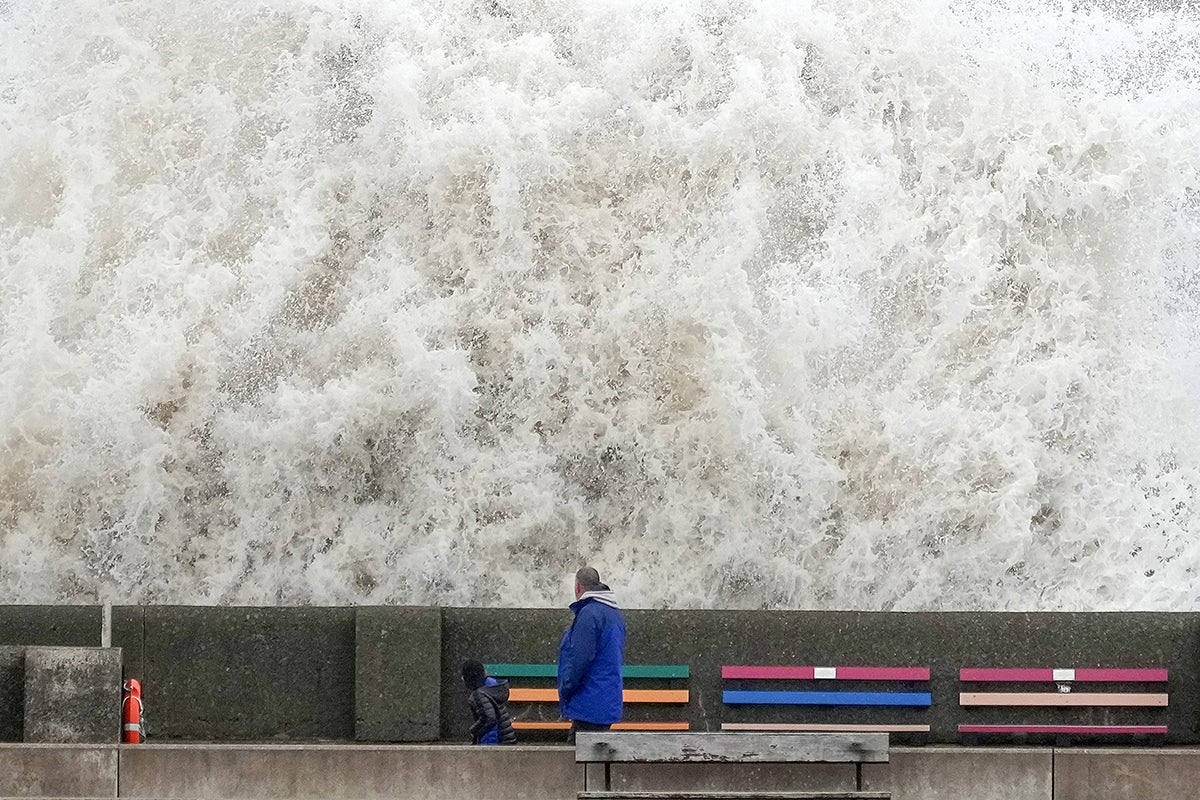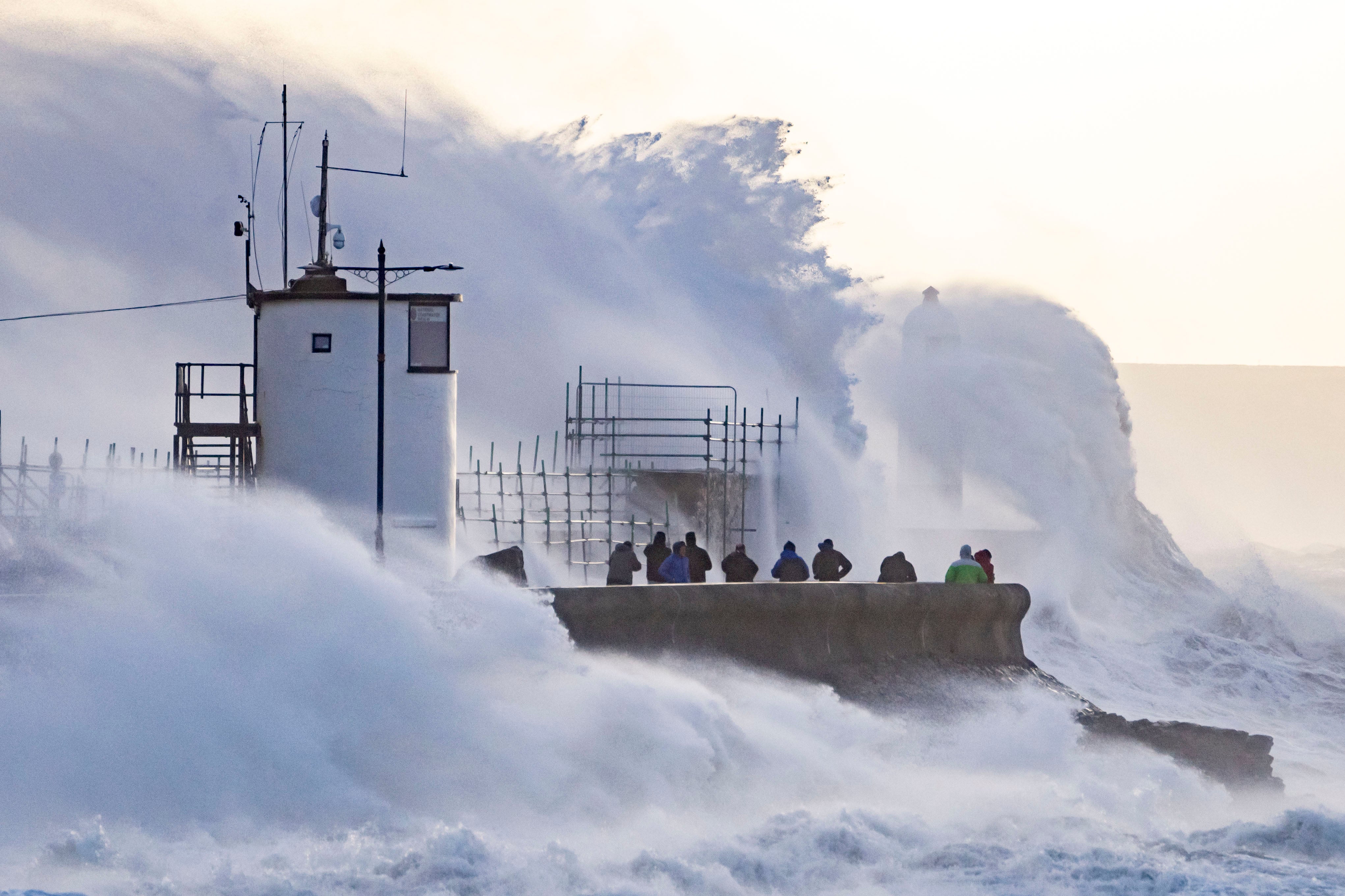The Independent's journalism is supported by our readers. When you purchase through links on our site, we may earn commission.
How to report a power cut in your area and what to do if you have one
From who to call to how to stay warm

Your support helps us to tell the story
From reproductive rights to climate change to Big Tech, The Independent is on the ground when the story is developing. Whether it's investigating the financials of Elon Musk's pro-Trump PAC or producing our latest documentary, 'The A Word', which shines a light on the American women fighting for reproductive rights, we know how important it is to parse out the facts from the messaging.
At such a critical moment in US history, we need reporters on the ground. Your donation allows us to keep sending journalists to speak to both sides of the story.
The Independent is trusted by Americans across the entire political spectrum. And unlike many other quality news outlets, we choose not to lock Americans out of our reporting and analysis with paywalls. We believe quality journalism should be available to everyone, paid for by those who can afford it.
Your support makes all the difference.On the heels of Storm Dudley, Storm Eunice is set to arrive this weekend with power cuts and travel disruptions predicted across the UK.
South West England and the south of Wales are expected to be the worst-hit areas, with the Met Office issuing a rare red weather warning as Storm Eunice is expected to bring “extremely strong winds”.
In a statement on Thursday 17 February, the Met Office said: “The red weather warning for wind covers southwest coastal areas of the UK, where the most significant gusts in exposed areas could be in excess of 90mph from early Friday morning.
“Further inland and within the wider amber warning area, gusts will still be significant and damaging for many, with 70-80mph gusts possible. With such severe weather impacting the UK, people should stay up to date with the latest warnings as they could be updated.”
The red weather warning for wind was extended to London and other parts of the south of England on Friday morning.

The winds are expected to be the strongest between 7am and 12pm on Friday 18 February, with a low amber warning issued for the rest of England and Wales.
Storm Dudley left 14,000 homes in the North East of England without power this week due to reported winds of up to 81mph — so what should you do if your power gets cut?
How should you prepare for a power cut?
The best way to tackle a power cut is to be prepared for when one happens. British Gas suggests creating a power cut survival kit that you can keep on hand for emergencies.
Your power cut survival kit should include torches, spare batteries, a battery-powered radio, a back-up charger for mobile phones and food that can be prepared without the use of electricity.
The energy provider also suggests buying an appliance thermometer for your fridge and freezer to make sure they stay below safe levels during a power outage (-18C for a freezer and 4C for a fridge).
Who can you contact if your power gets cut?
If your experience a power outage, the first thing to do is to check if there are power outages in your area as some power cuts could be due to a more central issue such as a blown fuse, which means only your household is facing the cut.
If the power cut it widespread, then you can contact your energy provider or contact your Distribution Network Operator (DNO) who is responsible for maintaining physical electricity supplies.
By calling 105, you will get put through to your local network operator who can offer you help and advice.
You can also find all details of DNO companies on the Energy Networks Association postcode lookup tool.
For gas emergencies, call 0800 111 999, the Met Office advises.

How to keep fresh food chilled during a power cut
One of the biggest worries about a power cut is that the fresh food you have kept in your fridge or freezer will go off, but this will only occur if the power is off for a considerable amount of time.
The Met Office advises keeping your fridge and freezer doors closed with a blanket thrown over them as this will “keep them cool for many hours”.
British Gas suggests consolidating foods in the same draw of your fridge so they can help keep each other cool and to stand meat and poultry products on a tray to stop juices dripping onto other foods if they thaw.
It also suggests freezing “danger” leftovers like meat, poultry and milk as these will last longer in the freezer.
How to stay warm during a power cut
For many, a power cut will also mean no heating — unless you have a wood-burning fire, that is.
To keep warm when it’s cold outside during a power outage, it’s important to wrap up. This means throwing on thick socks, woolly jumpers , any base layers you may have and curling up under a blanket.
British Gas says it’s also important to keep doors and windows closed, including internal doors, to try and contain the heat to specific rooms. Draughts should also be blocked where possible with draught excluders or by placing a rolled-up towel under your door.
What should you do during a power cut if you’re older or disabled?
If you are older or disabled, the Met Office advises getting yourself on the Priority Services Register, a free service provided by power and water suppliers for disabled and older people.
This is especially important for those who depend on electricity to keep medical or mobility equipment running.
You can find out how to sign up for the Priority Services Register here.
Join our commenting forum
Join thought-provoking conversations, follow other Independent readers and see their replies
Comments